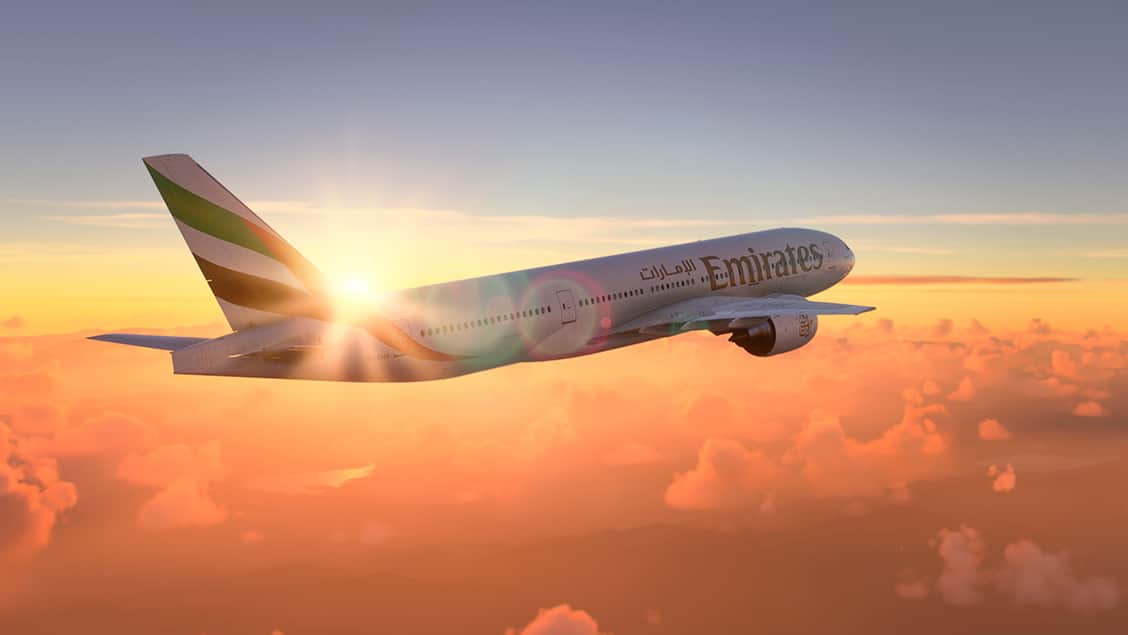Emirates Airlines and flyDubai delivered a boost to Boeing’s order book during the recent Dubai Airshow, booking 125 wide-body jets in a $50-billion deal. It sends a signal to regional rivals that Dubai intends to maintain its leadership position in the aviation sector.
Government-owned Emirates, which touts half-year profits of $2.7 billion, ordered 55 additional Boeing 777-9s and 35 777-8s. The Dubai carrier’s order backlog for Boeing’s 777x program is now at 205 units, making it the world’s largest 777 operator.
It also increased its concurrent order for Boeing 787 Dreamliners from 30 to 35 aircraft, comprising 15 787-10s and 20 787-9s. By the early 2030s, Emirates predicts it will have a 350-strong fleet.
“These additional aircraft will enable Emirates to connect even more cities, supporting the Dubai economic agenda D33 set out by HH Sheikh Mohammed bin Rashid Al Maktoum, to add 400 cities to Dubai’s foreign trade map over the next decade,” Emirates Airline chair and CEO Sheikh Ahmed bin Saeed Al Maktoum said in a prepared statement.
Sister airline FlyDubai also ordered 30 787s, marking the airline’s first foray into the wide-body sector.
The Airshow announcements were a setback for Airbus, which was unable to unveil a large order for 355 jets from Turkish Airlines, because the agreement was made “in principle.”
Emirates threw the Toulouse, France-based plane maker a lifeline ordering 15 additional A350-900s worth around $6 billion. Airbus is mired in a standoff with Emirates for an order of A350-1000s, with the airline citing concerns about the durability of the jet’s Rolls-Royce engines.
Meanwhile, almost five years after a fatal crash, Ethiopian Airlines capitalized on the Airshow’s high profile, placing orders for 20 Boeing 737 MAX aircraft in what is being portrayed as a vote of confidence. Additionally, the airline also ordered 11 787 aircrafts. The airline separately ordered 11 Airbus A350-900s. Plane makers are pinning hopes of further sales in the region, with the newly launched Riyadh Air yet to fully confirm its fleet plans. Some analysts say the war in Gaza could impact the region’s aviation sector amid signs of falling ticket sales and concerns other state actors may be drawn into the conflict. Both Emirates’ and Ethiopian’s growth plans could be derailed as a result.




